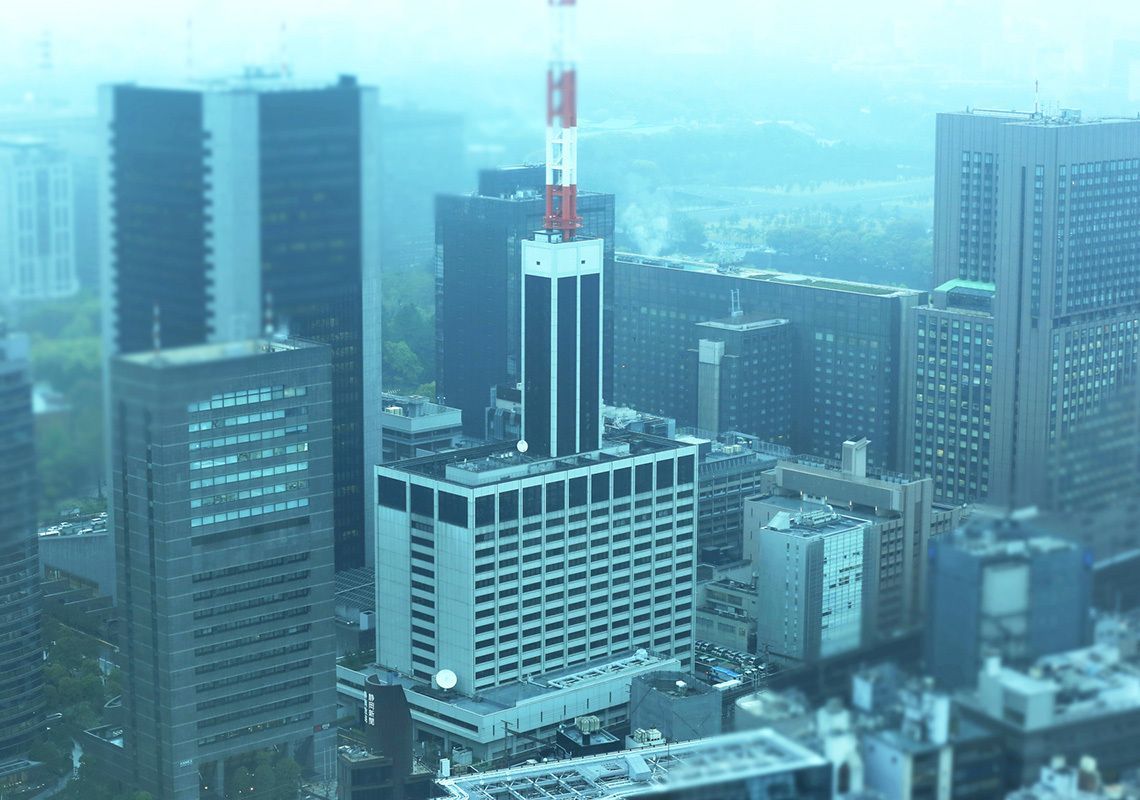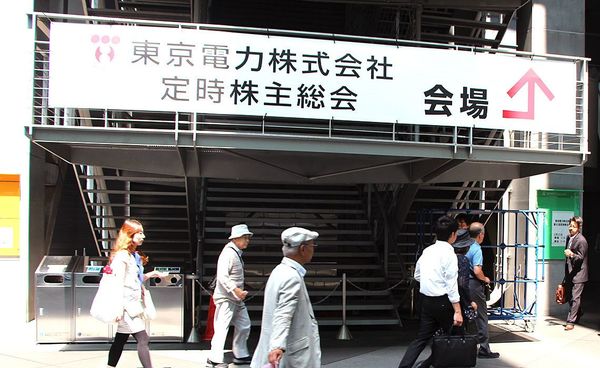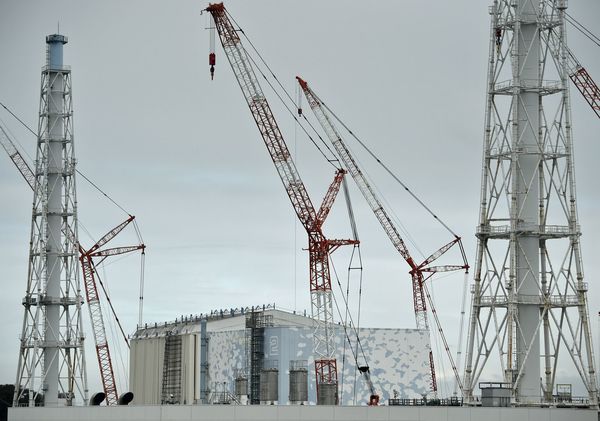
Tokyo Electric Power Company (TEPCO) made this point clear in response to a voice of dissatisfaction raised in the general shareholders’ meeting that convened on June 25, demanding the company straightforwardly to withdraw from nuclear business.
More than 2000 shareholders gathered at Tokyo International

Forum this year to attend the fifth general shareholders’ meeting held since March 11, 2011, the day Fukushima Daiichi nuclear power plant suffered catastrophic damage after being struck by the Great East Japan Earthquake. It was also the third round since the company essentially became state owned when Nuclear Damage Compensation and Decommissioning Facilitation Corporation acquired the majority of voting shares in July 2012.
In terms of the total count of shareholders in attendance, this year turned out to be the lowest in this decade, dropping from 2150 last year and 2090 in 2013 and far below 4471 in 2012.
With Chairperson Fumio Sudo in the same position he assumed last year, the meeting proceeded fairly smoothly without being interrupted by irregular statements or filibuster staged in particular. It closed in 3 hours and 43 minutes, much faster than in 2011 when it ran for 6 hours and 9 minutes with 9309 shareholders attending, both marking a record high.
15 proposals from shareholders rejected
Three proposals in the agenda were prepared by the company. All of them, as outlined below, were approved by majority vote:
―― the establishment of three wholly owned subsidiaries formed through absorption-type company split in conjunction with the planned conversion of the parent company into a holding company in April 2016 and aimed at running each of the three core businesses—fuel and thermal power generation, transmission and distribution network services, and retail—separately on a stand-alone basis;
―― the renaming of the trade name to “Tokyo Electric Power Holdings”;
―― the partial revision of the articles of association to expand the board to a total of 13 directors by adding two more and the election of 12 directors that include the reappointment of Chairman Fumio Sudo and president Naomi Hirose and four new appointments consisting of managing executive editor Toshiro Takebe, who leads the transmission and distribution network service division; executive office Keita Nishiyama, the ex-deputy director general representing the Ministry of Economy, Trade, and Industry; Advisor Yuji Masuda, the former managing executive officer; and Mr. Yasuchika Hasegawa, the chairman of Takeda Pharmaceutical Company.
On the contrary, all the fifteen proposals raised by the shareholders were rejected by a majority of opposition votes. These included
―― the withdrawal from nuclear plant operations,
―― the prioritized use of the power generated from renewable energies,
――backing out of the reprocessing contract with Rokkasho reprocessing plant,
―― the abolition of the spent nuclear fuel interim storage plan, and
―― the addition of a provision in the articles of association to disclose the minutes of board of directors meetings.
Emphasis placed on the need to reopen nuclear facilities for quick resumption of dividend payment
The questions raised from the attending shareholders touched on a wide variety of topics, most of them reflecting their growing concerns on the way the current management has been running the company.
“Shouldn’t the company withdraw from nuclear plant operations by also taking into consideration its employees who have been enduring the prolonged social pressure as the subject of public criticism since the nuclear accident?” inquired one shareholder.
To this opinion, Hirose, the company’s president, requested for understanding by responding that “nuclear plants serve as a vital source to supply power stably and as economically as possible. The company will ensure that all the conceivable safety measures are thoroughly implemented to prevent critical accidents equivalent to those encountered in Fukushima from occurring ever again.”
Even when asked about the prospect of the company resuming the dividend payment, Hirose reemphasized the urgent need of restarting the nuclear facilities in his reply, saying, “The company would like to see it happen as soon as possible, but in order to so, we need to be able to reap profits steadily and consistently. For us to recover to that state, the restart of operations at Kashiwazaki-Kariwa nuclear power plant would have a large positive impact on our profitability.”
When another shareholder urged the management to explain about how the company intends to compensate the disaster victims after its nuclear business and accessory obligations are transferred next year to the holding company, the president asserted that “the new company will fulfill its liability for damages arising from the Fukushima accident by receiving contributions in diverse forms from the three business divisions (generation, transmission and distribution, and retail) that will be managed independently.”
No action toward Asahi's erroneous coverage

One shareholder took up the issue regarding Asahi Shimbun’s erroneous coverage titled “The Yoshida Testimony,” which was a series of articles that unveiled the results of confidential government-led interviews conducted to Masao Yoshida, who served as the general manager of Fukushima Daiichi at the time the nuclear reactor accidents occurred, reporting inaccurately that “the workers withdrew from the nuclear plant against the plant manager’s order.”
To the claim raised by this shareholder that the company should take action for libel against the major newspaper’s fabrication, President Hirose emphatically agreed that “the articles that alleged that 90% of our workers ran away were not factual and were therefore very disappointing,” but nevertheless, he expressed his thought of not taking this case to court based on the judgment that “Asahi had already apologized and faced social sanctions.”
Another shareholder openly conveyed the desire of knowing how the leadership is perceiving the scheduled full liberalization of the retail sale of electricity to households from April next year, indicating that “a newspaper questionnaire survey found that 60% or more users are interested in switching their contracting party to a different power company.”
In response to this shareholder’s inquiry, the head of the company’s retail arm, managing executive officer Tsuyoshi Yamazaki, admitted that he is holding “a very strong sense of crisis” and added that his division intends to curb the decline of contracts by “diversifying the portfolio of our products and services through cross-industrial collaboration and expanding the sales area through the seizure of opportunities in customer channels cultivated by the competitors.”
He also revealed the plan to bolster the gas business by procuring a vast volume of liquefied natural gas, which his team embraces as a strategic move to take advantage of the full liberalization of the retail sale of city gas slated for introduction in 2017.



